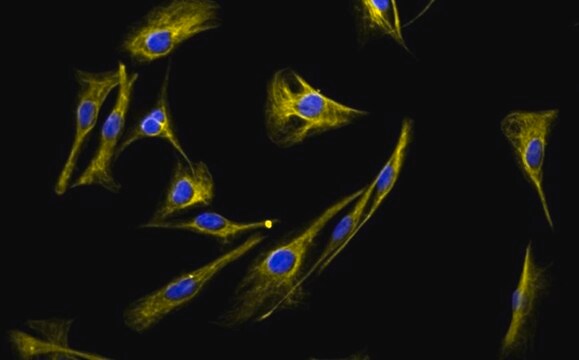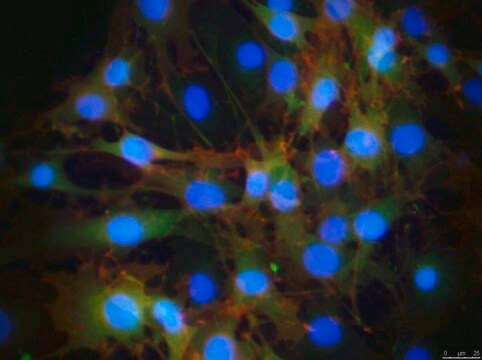SCC069
HSC-T6 Rat Hepatic Stellate Cell Line
Rat
Sinónimos:
HSC, Perisinusoidal cells, Ito cells, Hepatic lipocytes, Hepatic pericytes
About This Item
Productos recomendados
product name
HSC-T6 Rat Hepatic Stellate Cell Line, The HSC-T6 rat hepatic stellate cell line is a valuable cell model for studies of retinoid metabolism based on their similar retinoid phenotype as primary cells.
biological source
rat
Quality Level
technique(s)
cell based assay: suitable
cell culture | mammalian: suitable
shipped in
ambient
General description
Cell Line Description
Application
Metabolism
Infectious Diseases
Inflammation & Immunology
Stem Cell Research
Liver Physiology
Components
Quality
• Cells tested negative for infectious diseases by a Mouse/Rat Comprehensive CLEAR panel PCR panel by Charles River Animal Diagnostic Services.
• Cells tested negative for mycoplasma contamination.
Storage and Stability
Storage Class
10 - Combustible liquids
wgk_germany
WGK 3
flash_point_f
Not applicable
flash_point_c
Not applicable
Certificados de análisis (COA)
Busque Certificados de análisis (COA) introduciendo el número de lote del producto. Los números de lote se encuentran en la etiqueta del producto después de las palabras «Lot» o «Batch»
¿Ya tiene este producto?
Encuentre la documentación para los productos que ha comprado recientemente en la Biblioteca de documentos.
Nuestro equipo de científicos tiene experiencia en todas las áreas de investigación: Ciencias de la vida, Ciencia de los materiales, Síntesis química, Cromatografía, Analítica y muchas otras.
Póngase en contacto con el Servicio técnico






